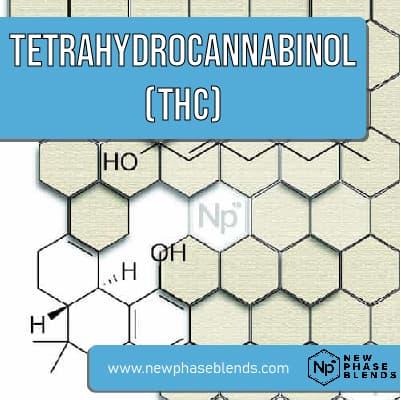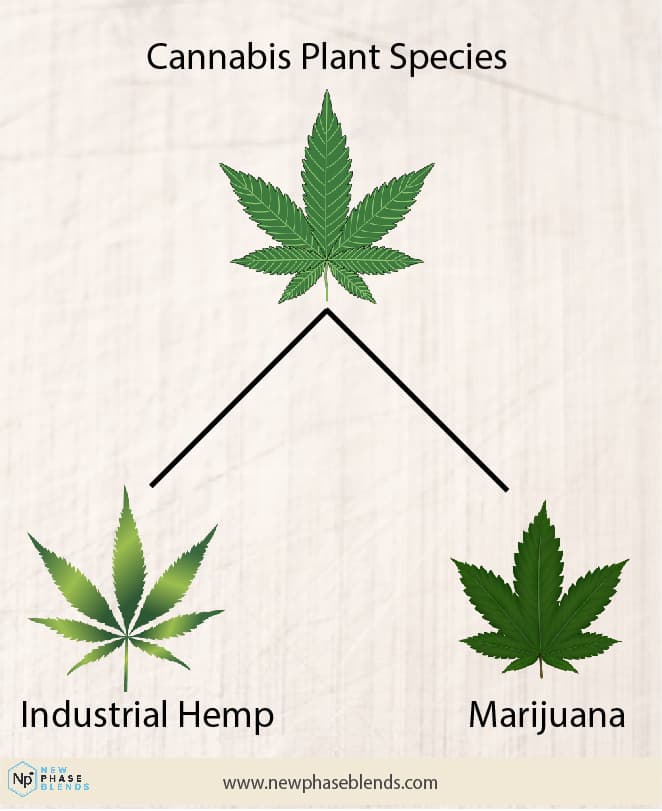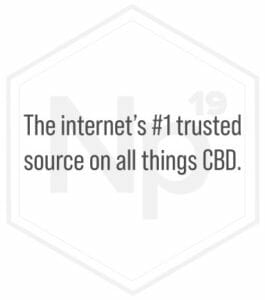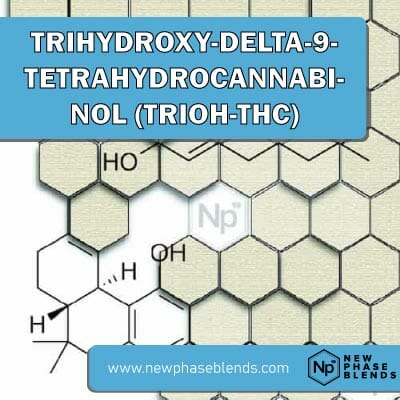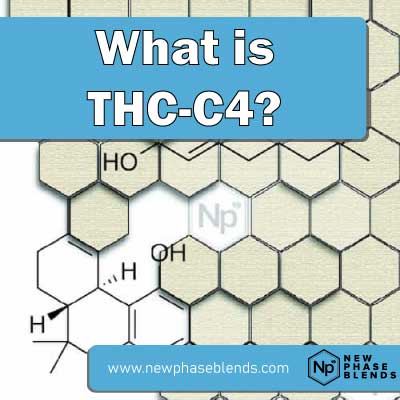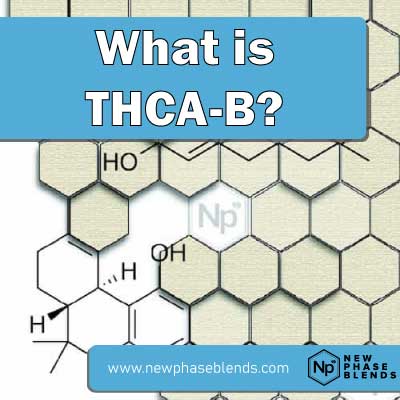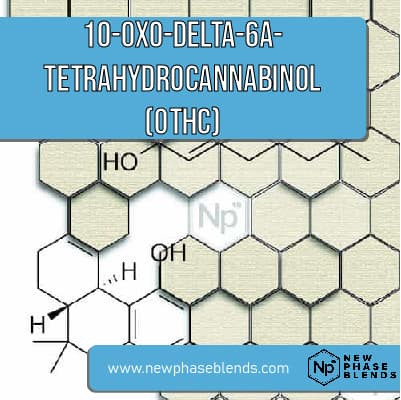THC, or tetrahydrocannabinol, is the most popular plant chemical within cannabis. Well known for its’ intoxicating effects, THC has become very popular throughout the last 30 years, but not for its’ negative effects (surprisingly). This article will cover all things THC, and hopefully leave you with a better understanding about it – other than the fact it can get you high.
What is THC?
What is THC? THC, or tetrahydrocannabinol, is one of the most (if not the most) widely recognized major cannabinoids within the cannabis plant species (both cannabis sativa and cannabis indica). It is the molecule that is responsible for making people feel ‘high’ after smoking or ingesting marijuana.
Due to the psychoactive nature of THC, it is illegal in most regions of the world. That being said, there has been a lot of movement towards decriminalization of this compound within the last ten years in the United States.
THC, double bond isomers, and their stereoisomers, actually fall under a category of cannabinoids listed by the UN Convention on Psychotropic Substances. There are currently two other compounds that fall under this category: dimethylheptylpyran (DMT) and parahexyl (a synthetic homolog of THC).
THC is a Controlled Substance
THC was classified as a Schedule I substance in 1971 under the UN Convention but reclassified to Schedule II twenty years later in 1991.
How Does THC Work in the Body?
THC is a partial agonist of the CB1 cannabinoid receptor, located mostly in the CNS (central nervous system), and the CB2 receptor, typically found in cells from the immune system.
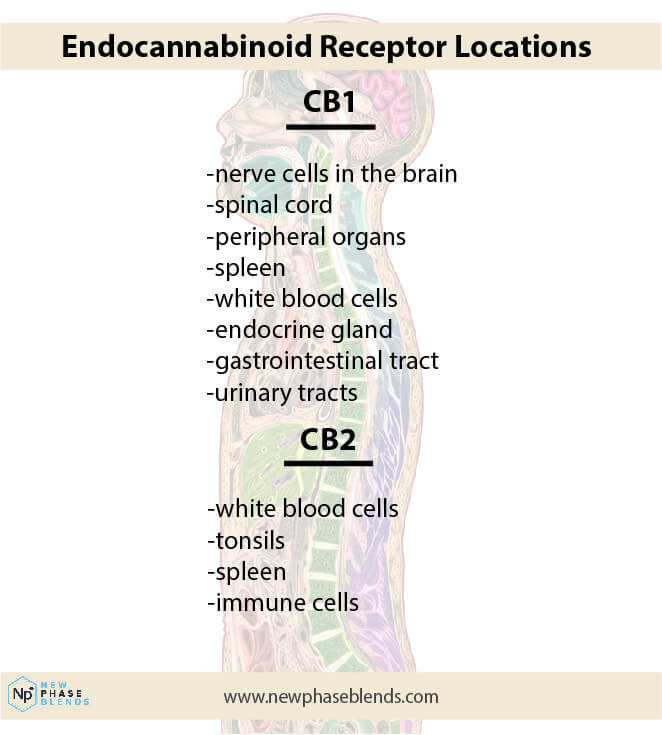
The psychoactive effects that it is responsible for are produced by the activation of cannabinoid receptors (CB1 and CB2), which result in decreased levels of a second communication molecule known as ‘cyclic adenosine monophosphate’ through the blocking of adenylate cyclase.
What’s the Difference Between CBD and THC?
CBD and THC are both plant chemicals (cannabinoids) within cannabis, but they are quite different. For starters, THC is intoxicating while CBD is not.
CBD is also legal, while THC remains illegal in most states.
Read this article for more information on the differences between CBD and THC.
Effects of THC
Since THC binds to the cannabinoid receptors in the body, it is effective for many different conditions.
Pain Relief
THC has been shown in studies to provide pain relief from both regular and neuropathic pain. It was found to be just as effective as traditional pain medications and exerted its effect through different pathways than traditional medications. In another study, THC blocked pathways in the central nervous system that are responsible for transmitting pain.
Neuro-Protection
THC and CBD were found to be the two most effective cannabinoids for protecting brain cells. THC was shown to prevent oxidative damage regardless of whether it had bound to CB receptors, showing that the compound itself possesses strong neuroprotective qualities.
PTSD and Anxiety Relief
THC has been shown to be an effective treatment for millions of people worldwide who suffer from PTSD and anxiety. In one study oral THC was given to 10 patients who had chronic PTSD. The study found that there was a significant improvement in symptom severity, sleep quality, frequency of nightmares, and PTSD hyperarousal symptoms.
Related: What Does CBD Stand For?
According to research compiled by the University of Washington, THC appears to decrease anxiety when used in low doses. It’s important to note that this research also showed an increase in anxiety when using high doses of THC.
Weight Loss
THC was shown in a 2015 study to alter the gut microbiome due to antibacterial effects. These gut microbiome changes alter the endocannabinoid tone in the GI tract and fat tissue leading to significant weight loss.
Interesting Fact: WHO has put the recommendation forward to change THC to schedule III, which is a less strict regulation.
These effects only seemed to take place in obese rats. Lean rats maintained healthy body weight levels without losing extra weight.
Anti-Inflammatory Effects
Research shows that THC may be a powerful anti-inflammatory compound. THC can suppress an overactive immune system by triggering apoptosis in T cells and dendritic cells, which benefits auto-immune conditions. THC was also found to change molecules known as histones, which helps suppress inflammation throughout the body.
Lowering Blood Pressure
THC and other cannabinoids are thought to lower blood pressure due to their vasorelaxant effects. These cannabinoids bind to the CB1 and TRPV1 receptors and are hypothesized to interact with the NO (nitric oxide) systems in the body.
Medical Cannabis and THC
Medical cannabis is almost available for qualifying patients in every state. Almost all medical cannabis remains controlled because of the THC content in it.
If you live in a state that doesn’t allow recreational marijuana use, look for a compassionate care program in the state. These compassionate care programs are another name for medical marijuana.
Medical Marijuana for Insomnia
A 2004 study compared THC to CBD in order to figure out their effects on sleep. THC was found to be a strong sedative, while certain CBD products were found to promote wakefulness.
Related: How Long Does Delta 8 THC Stay In Your System?
Tetrahydrocannabinol is widely known for its’ ability to make people feel sleepy, and sometimes even lazy. This is why medical marijuana is great for insomnia.
State Laws on THC
According to Federal Law, THC is still classified as a Schedule I substance under what’s known as the Controlled Substances Act due to it having having “no accepted medical use” and a “lack of accepted safety”. This is contradictory to the massive amount of medical research that proves marijuana’s efficacy in the medical community.
Interestingly, dronabinol, a pharmaceutical form of tetrahydrocannabinol, has been approved by the FDA as an appetite stimulant for people suffering from AIDS. It is also used as an anti-nausea medication for people undergoing cancer treatment via chemotherapy. The trade names of these drugs are Marinol and Syndros – both of which help improve, or offer relief from, medical conditions.
Cannabis Sativa vs Cannabis Indica
THC is found in large amounts within cannabis indica (marijuana). There is no law on the limit of THC that this cannabis plant species can contain.
Cannabis sativa (industrial hemp), on the other hand, can only contain up to 0.3% THC, according to the Farm Bill of 2018.
Both plants are identical in makeup, except for the THC content.
Common Questions About THC
Does THC make you feel high?
Yes, THC is an intoxicating cannabinoid that is responsible for making people feel high after consumed.
What amount of THC is considered one serving?
In just about every state that has legalized marijuana, cannabis products will contain 10 mg of THC, per serving. A select few states identify 7.5 mg of THC as one serving.
Both 7.5mg of 10mg are likely to get people high, unless you’ve built a tolerance to THC.
How long does THC stay in your system?
THC stays in your system for several weeks, in trace amounts. It is stored, long term, in fat cells. There is really no way to expedite the clearing of THC from your body. Some people utilize detox kits to mask the THC content in urine, but this does not clear it from your system.
Related: How Long Does CBD Stay in Your System? | How Long Does Delta 8 Stay in Your System?
Do all cannabis products have THC in it?
More or less, yes, they will. Certain products made from help can contain less than 0.3% THC, making it an amount so small that it’s negligible to the user.
The cannabis plant naturally contains THC in it, so by proxy, all cannabis products will have at least a trace amount of it. Marijuana will have higher amounts than industrial hemp (cannabis sativa), by law.
Are there other intoxicating cannabinoids, besides THC?
THC remains the only cannabinoid that we know of that has the ability to get people high. There are several forms of THC like: delta 8, delta 10, HHC, and others. All of these are different cannabinoids, but still fall under the THC family.
What Does THC Stand For?
THC stands for tetrahydrocannabinol. It’s a plant chemical known as a cannabinoid that’s found mainly in marijuana.
Summary – What is THC?
I trust this article helped you learn a little bit more about THC, other than the fact that it gets you high. We’ve progressed beyond the notorious status of THC in this country, and we’re on the brink of federal legalization of it.
Remember, until that happens, THC is widely considered a controlled substance. Only use it legally, in states that have allowed it for recreational use. Compassionate care programs are now available in almost all states, making medical marijuana readily available to those who need it.



